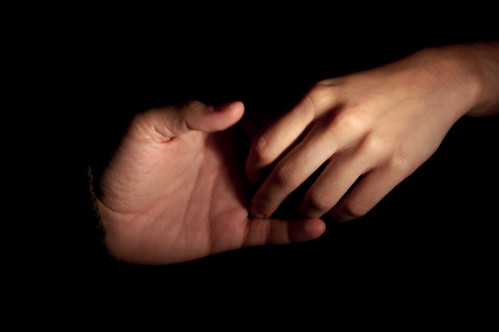Touch has a memory: developing prosthetics which can feel
 Prosthetic options available to amputees are becoming more and more like the flesh and blood they replace. Already, myoelectrically controlled upper limb prosthetics can be controlled to a reasonably fine level, by electrical impulses naturally generated by the residual muscle. However, these prosthetics don’t restore one of the hands’ most important functions: perceiving the world through touch. But soon– perhaps even in five years, if everything goes to plan– prostheses with sensory capabilities could be available. Dr Dustin Tyler, who heads the research team behind this new technology, provided us with an overview of the ongoing project.
Prosthetic options available to amputees are becoming more and more like the flesh and blood they replace. Already, myoelectrically controlled upper limb prosthetics can be controlled to a reasonably fine level, by electrical impulses naturally generated by the residual muscle. However, these prosthetics don’t restore one of the hands’ most important functions: perceiving the world through touch. But soon– perhaps even in five years, if everything goes to plan– prostheses with sensory capabilities could be available. Dr Dustin Tyler, who heads the research team behind this new technology, provided us with an overview of the ongoing project.
Wiring it up
Currently two people are test driving the new sensors. To allow the sensors to be “plugged in“ to the nervous system, an electrode cuff developed by the Tyler laboratory was fitted around their nerve stump, and the attached leads are routed to the deltoid area of the shoulder, where they emerge. Despite the novelty of this procedure, it took only four hours, and aftercare was straightforward. But even more surprising is how quickly they took to their new sensory capabilities.
When sensory perception is added to subjects’ own myoelectrically controlled hand prostheses, touch stimuli are perceived as mapping onto locations on their phantom limb. Even several years after amputation, once they are able to feel what they are handling, “without any training, they're able to improve their function.” says Tyler. “So it really speaks to how natural getting that sensation back is, and how quickly they can reintegrate with the natural control feedback schemes that exist in their life before they lost the hand. So we have been very excited about that aspect, and a little bit surprised at how quickly they picked it up.” This improvement comes not only from this natural ability, but from the boost in confidence the sensory feedback gives: “Adding the brain back into the loop is a very powerful addition to the system. Not to mention the aspects that were sort of the intangibles, not controlled directly, but the subjects' confidence in their task. ‘Just knowing that [I’m] holding an object,’ is the comment that they would make on a regular basis, that ‘I feel so much more confident, I feel better, I know whether or not I’m holding an object, I’m not guessing at what I'm doing,’ so very profound effects, we think.”
Unexpected benefits
Another unanticipated effect was pain relief. “Now interestingly, both our patients reported that they had episodic, fairly significant phantom pain coming in, and then that phantom pain has all but disappeared for both our subjects since they began the study. So we are very interested in what happens in a future study on pain itself,” This added bonus is “almost as big a benefit as having sensation itself.” And the project’s findings may stimulate other fields of research: “The fact that we can affect what they feel is really quite important, and has implications for use, obviously beyond just sensory feedback, probably in other disabilities such as debilitating pain, tremor disorders, areas like that may be of interest to your readership, things like Parkinson’s, stuff like that. We’ve been looking at how the language… of the nervous system can affect other disabilities and neural conditions. We think this is the beginning, not the only [application], so we’re looking forward to extending this in many different areas.”
A hand, not a prosthesis
Tyler illustrated the level to which prostheses are improved by sensory feedback, and the importance of making such prostheses available to patients, by sharing users’ experience. “To use the prosthesis without the sensory feedback, they describe it as their phantom holding a tool doing the work, so they view this as an extension or a tool. But when we turned the sensation on, they described it as their hand actually doing the activities. So it’s a fairly profound difference in how they view it. Just to sort of put the point on it, one of our subjects, when he leaves the lab, says he’s always very disappointed. Because even though he has this prosthesis, he has to leave his hand behind.”
----------------------
Sign up to receive our weekly bulletin and comment on discussions!
----------------------
Like what you just read? Check out some more topics on bespoken...
Top amputee disabled golfer plans greater success in 2013 on new TG...
Glasgow 2014 - Para-swimming by Timothy Allan
Tags:
Replies to This Discussion
© 2025 Created by Gordon White.
Powered by
![]()